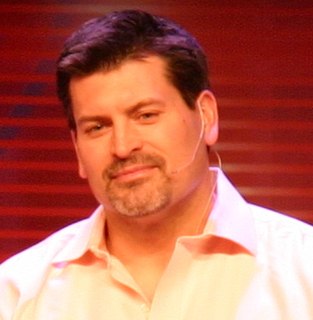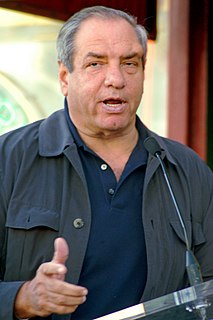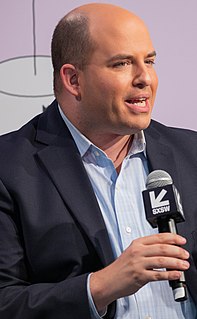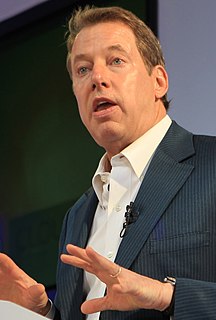A Quote by Guy Kawasaki
The most powerful way to convince the interviewer that you can do the job is to show how much you already know about the industry, the company, and the products/services of the company. In other words, enchant the interviewer with how much you already know.
Related Quotes
When you're coming into a company and, you know, have to do a transformation, what you really want to do is look at the company and say, 'Okay, here are the parts that the company does well. How do we get those genes to hyper-express? The genes that are getting in the way, how do you turn those off?'
Publishing is the only industry I can think of where most of the employees spend most of their time stating with great self-assurance that they don't know how to do their jobs. "I don't know how to sell this," they explain, frowning, as though it's your fault. "I don't know how to package this. I don't know what the market is for this book. I don't know how we're going to draw attention to this." In most occupations, people try to hide their incompetence; only in publishing is it flaunted as though it were the chief qualification for the job.
Virtually every company will be going out and empowering their workers with a certain set of tools, and the big difference in how much value is received from that will be how much the company steps back and really thinks through their business processes, thinking through how their business can change, how their project management, their customer feedback, their planning cycles can be quite different than they ever were before.
My biggest fear is that we [Unilever company] at one point in time will not be able to attract the best and brightest [workers]. I don't worry so much about the business, the strategy. If we can continue to attract the best, I know they will ultimately figure out how to run the company in a very tough environment.
At Travelers, we were much more opportunistic. It was very successful, but it wasn't an integrated financial services company. We had a property casualty company, a life company, a brokerage company. We were a financial conglomerate. It wasn't a unified, coordinated strategy of any sort. When it merged with Citi, that became a big issue; Citi, at that time, wasn't yet a fully integrated, coordinated company.

































